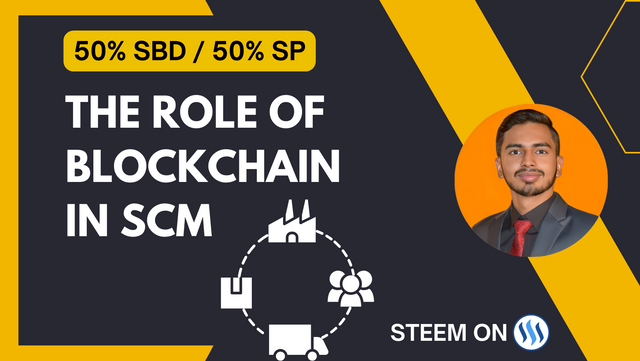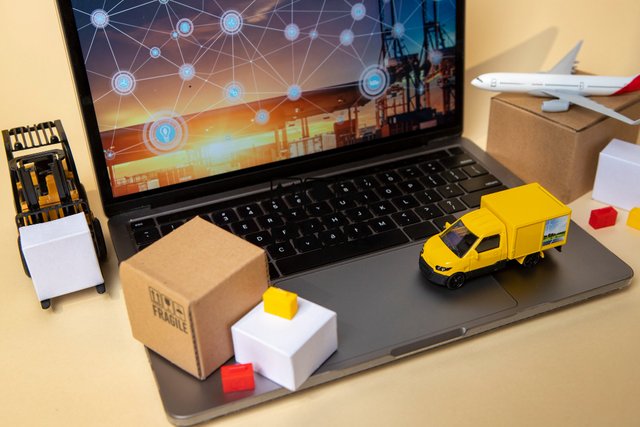The Role of Blockchain in SCM

Introduction
Supply chain represents the full cycle of delivering goods from source to customer. Ordinarily, this procedure is highly intricate with numerous obstacles. In this article, we'll examine the issues faced in conventional supply chain management and how blockchain can help overcome such difficulties.
Major Challenges Faced by Traditional SCM
The biggest problem is transparency. Think about it, if you don't know where your product's raw materials are coming from or how it's being manufactured, how are you going to control quality? Many businesses do not know what stage their goods are on. Not only does this lead to delays, but sometimes the product ends up in the wrong place.
Then comes the issue of inefficiency. Traditional methods require manual handling of data which is bound to cause errors. Miscommunication leads to misutilization of resources and increases costs. All these problems also slow down the production speed and adversely affect customer satisfaction.
Inventory management is also a major challenge. Often, companies don't know how much stock they have and how much more they need. This either leads to overstocking, which is then wasted, or understocking, which angers customers.
How can blockchain technology help address these challenges?
First let's clear up a few concepts about blockchain. Blockchain could be regarded as a virtual ledger that records transactions and data which is copied to every network participant's computer. It follows that the supply chain based on blockchains can trace each step a product goes through from its production to its final delivery. Where did the raw materials come from, where is the product being worked on, and how long until it arrives at our customer. This not only enhances transparency but it also makes quality control more convenient, as the product is being monitored at every stage.
Now let's talk about efficiency. Data handling and transactions become automatic with the help of blockchain. Through smart contracts, which are part of blockchain technology, you can ensure that each supplier or manufacturer fulfills its obligations on time and accurately. It eliminates manual data entry, often prone to errors. Miscommunications and delays common to traditional methods are significantly reduced, and the overall supply chain runs more smoothly.
Blockchain can also revolutionize inventory management. Since everything is recorded in the blockchain, companies always have up-to-date information on how much stock they have and what their states are. This means you avoid the situation of having too much or too little in your storage room. At the same time, it becomes possible to reduce inventory expenses.
Key Features of Blockchain That Make It Suitable For SCM
When it comes to blockchain technology for supply chain applications, there are certain characteristics that make it so suitable. Let us understand these features in a little detail.
Transparency:
The most critical property is transparency. All of the transactions are maintained in the blockchain, and those records are available to anybody in the network. Consequently, anyone can determine that the product has reached a particular point, where the raw material was obtained, and when it will be supplied to the consumer. This way, no one can sneak or cheat because everything is open. Both customers and businesses benefit because trust is built.
Security:
Blockchain's security features are also excellent. Each block that is part of the chain is based on cryptographic principles and is securely linked to the previous block. This makes it very difficult to manipulate or hack the data. You can think of it as a strong digital safe keeping your data safe and secure.
Decentralization:
Blockchain is a decentralized technology, meaning the system is not under the control of one person or organization. The data reach every node in the network and nothing is deleted or lost. Thus, it lacks a central point of failure, which is typical for a usual database. The immediate consequence from the above-mentioned peculiarity is higher reliability and security measures that can minimize the possibility of intrusive activity or fraud.
Efficiency and Speed:
Blockchains are also excellent for supply chain purposes because of their immense efficiency. Conventional supply chain methods necessitate various steps that are overburdened with paperwork, manual entry, and third-party verification systems, making the whole process time-consuming and less efficient. In the case of a blockchain, every transaction and confirmation would be performed automatically and immediately.
Traceability:
Product traceability is another major issue in the supply chain. It’s a big problem for every business when you don’t even know where your product is or where its components’ parts are. On the blockchain, each stage is permanently marked and is available through the ledger. This implies that you may locate the complete history of the product since it is forever fixed. This traceability not only improves the efficiency of the company but also the end-users.
Some Industries Using Blockchain Solutions for SCM
Blockchain technology is transforming supply chain management, and many industries have adopted this new tool. Let's talk about some specific industries and their use cases, where blockchain has improved supply chain processes.
Blockchain is used in the food and beverage industry to improve food safety and traceability. Walmart used IBM’s blockchain platform to run a test pilot of the technology. The aim was to have the capacity to identify any food product’s source and track it from that point to the store. Customers know that they’re eating safe food and that it can be recovered if it makes them ill. Some of the big firms that use blockchain include Nestle and Unilever.
The pharmaceutical industry is plagued by counterfeit drugs. Blockchain technology allows companies to trace and verify every step of each drug’s production to delivery. The practice not only benefits patient safety but also prevents an influx of illegal drug trades. Drug manufacturing companies like Pfizer tried out blockchain solutions that monitor the drugs’ lifecycle.
Conclusion
Blockchain technology offers a unique solution to transform conventional systems of supply chain such that they continuously and progressively improve. In essence, a blockchain provides real-time data updates and offers the simultaneous application of smart contracts on all the links of a specific supply chain. However, the technology also has its limitations. Not every organization can adopt blockchain. There are many technical factors to consider such as an expensive initial cost and integration with legacy systems.



Note:- ✅
Regards,
@jueco
Thank you for the feedback. 😊